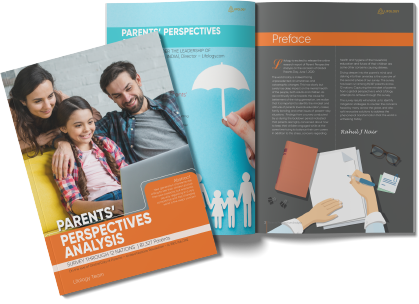Everybody might have heard of civil service exams but do you know why civil service is so important? It is because the civil services of India run the entire administration of the country. The civil servants are selected through the Civil Services Examination (CSE), the toughest nationwide competitive examination in India, or maybe in the world.
The most attractive thing about a career in civil service is that you can work for the well-being of the nation and its people. It brings you prestige and power and also opens up an opportunity to participate in governance and drafting policy decisions for the public. It is an excellent career option with a lot of privileges.
CAREER OPPORTUNITIES IN CIVIL SERVICES
Job opportunities under civil services are confined to Group A & B
Group A
- Indian Administrative Service (IAS)
They hold chief positions of a district such as Collector and Magistrate and can also be the secretaries of various ministries.
- Indian Administrative Service (IAS)
- Indian Foreign Service (IFS)
High Commissioner, Ambassador and Foreign Secretary are the important positions under the IFS. They are entrusted with managing and developing diplomatic contacts with other nations.
- Indian Foreign Service (IFS)
- Indian Police Service (IPS)
They hold important leadership and commanding power over state police and all India Central Armed Police Forces.
- Indian Police Service (IPS)
- Indian Revenue Services (IRS)
It comprises two branches,- IRS (Customs & Indirect Tax): Collection of excise and customs taxes under the statutory body of the Central Board of Excise and Customs.
- IRS (Income Tax): Collection of direct taxes under the statutory body of the Central Board of Direct Taxes.
- Indian Revenue Services (IRS)
- Indian Defence Accounts Services (IDAS)
They manage finances during defence acquisitions, licensing, procurements, and service warranties of weapon platforms.
- Indian Defence Accounts Services (IDAS)
- Indian Railway Traffic Service (IRTS)
They manage and operate the commercial wing of Indian Railways.
- Indian Railway Traffic Service (IRTS)
- Indian Railway Personnel Service (IRPS)
IRPS consists of the Human Resource managers of Indian Railways. They handle personnel selection, pay and training etc.
- Indian Railway Personnel Service (IRPS)
- Indian Railway Protection Force Service (IRPFS)
They manage the railway police force by handling the security of equipment and customers of Indian Railways.
- Indian Railway Protection Force Service (IRPFS)
- Indian Defence Estates Service (IDES)
They are the chief executive officers in cantonments around the country.
- Indian Defence Estates Service (IDES)
- Indian Information Service (IIS)
They handle the organized media and public relations of the government and report on the feedback of the public to the government.
- Indian Information Service (IIS)
- Indian Postal Service (IPOS)
They are concerned with developing national schemes for postal communication.
- Indian Postal Service (IPOS)
- Indian Post & Telecommunication Accounts & Finance Services (IP&TAFS)
The field specifically serves various financial management services for the Post and Telecommunication departments.
- Indian Post & Telecommunication Accounts & Finance Services (IP&TAFS)
- Indian Civil Accounts Service (ICAS)
They work under the Ministry of Finance and provide a complementary role to auditing, collection of taxes and creating budgeting estimates for various ministries and hence control the financial management of the union government.
- Indian Civil Accounts Service (ICAS)
- Indian Trade Service (ITS)
They manage international trade and commerce.
- Indian Trade Service (ITS)
- Indian Audit & Accounts Services (IAAS)
They work under the Comptroller and Auditor General of India in an audit managerial capacity.
- Indian Audit & Accounts Services (IAAS)
- Indian Ordnance Factories Services (IOFS)
They work under the Ministry of Defence for managing and developing Indian ordnance factories.
- Indian Ordnance Factories Services (IOFS)
Group B
- Armed Forces Headquarters Civil Services (AFHCS)
They work under the Ministry of Defence and are entrusted with administrative functions in the headquarters of the Navy, Army and Armed forces.
- Armed Forces Headquarters Civil Services (AFHCS)
- Delhi, Andaman Nicobar Islands Administrative Service (DANIAS)
They handle various administrative roles in governmental bodies of the union territories namely Delhi, Andaman & Nicobar, Daman & Diu, Lakshadweep, Dadra & Nagar Haweli under their union government.
- Delhi, Andaman Nicobar Islands Administrative Service (DANIAS)
- Delhi, Andaman Nicobar Islands Police Service (DANIPS)
They handle policing services over union territories namely Delhi, Andaman & Nicobar, Daman & Diu, Lakshadweep, Dadra & Nagar Haweli.
- Delhi, Andaman Nicobar Islands Police Service (DANIPS)
- Puducherry Civil Services (PCS)
They handle the administrative roles of the Puducherry area.
- Puducherry Civil Services (PCS)
- Puducherry Police Services (PONDIPS)
They handle policing in the Puducherry area.
- Puducherry Police Services (PONDIPS)
SKILLS REQUIRED TO STUDY CIVIL SERVICES
- Reading habit
- Awareness of current affairs
- The habit of reading newspapers and magazines
- Problem-solving and analytical mind
- Empathy
- Reasoning skills
- Patience
- Responsiveness
- Resilience
- Commitment for work
- Excellence in work
- Compassion
- Transparency
- Legal and Rational action
- National interest
THE EXAM
- The Civil Service Exam or CSE is a nationwide competitive exam conducted by the Union Public Service Commission (UPSC).
- It is conducted in two stages: Prelims and Mains. The Mains is confined to an exam and a personal interview.
- The Prelims exam is referred to as Civil Service Aptitude Test (CSAT). It consists of two objective-type papers.
- The Mains exam consists of 9 essay-type papers. Only those who qualify for the main exam will be eligible for the personal interview.
ELIGIBILITY FOR CIVIL SERVICE EXAM
Age limit
- A Candidate must have attained the age of 21 years and must not have attained the age of 32 years on 1st August of the year of the examination supposed to be attended.
- The Age limit is the same for both males and females.
- Up to a maximum of 5 years of relaxation is allowed for a candidate who belongs to a scheduled caste (SC) or scheduled tribe (ST). That is, the upper age limit is 37 years.
- Up to a maximum of 3 years of relaxation is allowed for a candidate who belongs to other backward castes (OBC). That is, the upper age limit is 35 years.
- Defence service personnel disabled candidates will get a relaxation up to a maximum of 3 years.
- An Ex-service person will get a relaxation up to a maximum of 5 years.
- Up to a maximum of 10 years of relaxation is allowed for blind, deaf-mute and orthopedically handicapped persons.
Number of Attempts
- Generally, it is counted and fixed to a number of 6 attempts.
- A candidate who belongs to the OBC category can attempt 9 times.
- No restrictions for SC/ST category in regard to attempts.
- A physically disabled general candidate can attempt 9 times.
Academics
- A candidate must have at least a bachelor’s degree in any subject from a UGC recognised institution or should possess an equivalent qualification.
- Candidates, who intend to attend the final exam or are waiting for the final results, can also apply for the prelims.
Nationality
- A candidate must be a citizen of India to be eligible for IAS, IPS or IFS.
- For other services, a candidate must be either
- A citizen of India
- A subject of Nepal
- A subject of Bhutan
- A Tibetan refugee who came to India before 1st January 1962 with the intention of permanently settling in India
- A person of Indian origin who migrated from Pakistan, Burma, Sri Lanka, and East African countries such as Kenya, Uganda, United Republic of Tanzania, Zambia, Malawi, Zaire, Ethiopia and Vietnam with the intention of permanently settling in India.
(All others except Indian citizens should have a certificate of eligibility issued by the Government of India)
TOP INSTITUTIONS FOR IAS PREPARATIONS
- Vajiram Ravi IAS Coaching,Delhi,India
- Plutus IAS Online Coaching, Uttar Pradesh, India
- Yojna IAS coaching, Delhi, India
- AKS IAS Online Coaching, Hyderabad, India
- Shankar IAS Coaching, Chennai, India
- Prayas India IAS Coaching, Mumbai, India
- Educrat IAS Coaching, Kolkata, India
- 02 IAS Academy, Chandigarh, India
- Achievers IAS Academy, Patna, India
- ALS IAS Coaching, Trivandrum, India
FAMOUS PEOPLE CONNECTED WITH CIVIL SERVICES
TN Seshan IAS
TN Seshan IAS has served as the 18th Cabinet Secretary and 10th Chief Election Commissioner. He became best known for his electoral reforms by identifying more than a hundred electoral malpractices in India.
Kiran Bedi IPS
Kiran Bedi IPS, the first woman in India to join the IPS, has served as the 24th Lieutenant Governor of Puducherry. She was awarded UN medals for outstanding service.








